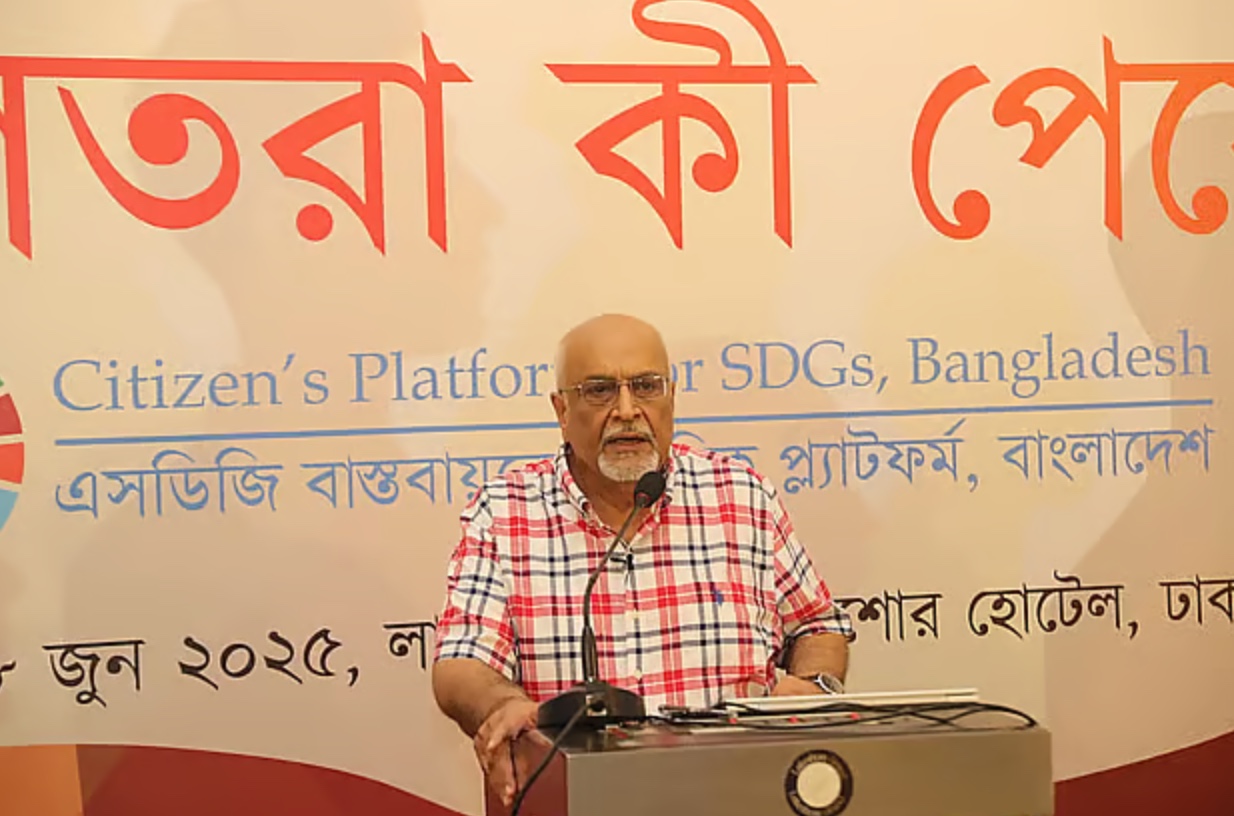Centre for Policy Dialogue (CPD) distinguished fellow Debapriya Bhattacharya has said the national budget for fiscal year 2025-26 has failed to meet the expectations of July uprising and it is reform-averse, and contradictory to equity.
He made these remarks at a meeting styled ‘National Budget 2025-26: What Have the Neglected Received?’ hosted by Citizens’ Platform at a city hotel on Wednesday.
Debapriya said, “This budget does not fulfill the expectations of July. The problem is that it has its mistakes and misconceptions. It is a reform-averse and inequitable budget.”
He also opined that there was a lack of discussion and consultation with political parties and relevant stakeholders in the budget formulation process.
Debapriya further said, “There were high hopes that this year’s budget would depart from the usual pattern. Sadly, it has turned out to be yet another conventional document.”
Anu Muhammad, economist and political analyst, underscored the need for transformation.
“It was essential to build national capacity and self-confidence. We hoped for a shift — a sign of change — from the government. But it failed to deliver,” he said.
Echoing similar concerns, Selim Raihan of Dhaka University commented, “There was an attempt to insert new elements, but within the constraints of the outdated budget framework. The overall macroeconomic structure is simply unrealistic.”
Criticism also came from ICMAB president Mahtab Uddin Ahmed who bluntly stated, “There is nothing for the poor in this budget.”
Tarique Rahman’s political adviser Mahdi Amin noted the lack of structural reform.
“This is not an inclusive budget. It follows the same path set over the last 26 years. There is no innovative policy framework. If implemented, this budget will only worsen inequality and devalue merit.”
Samantha Sharmin, senior joint convenor of National Citizen Party, argued that the budget neglects the political energy of Bangladesh’s younger generation.
“This budget is inadequate for economic transformation. It does not reflect the aspirations of the student uprisings. What we needed was a revolutionary budget — instead, we received more of the same. The government appears to have adopted the mindset of a caretaker regime, forgetting its responsibility to the people.”
The meeting, chaired by Debapriya, drew participation from a wide range of stakeholders like academics, development professionals, political figures, private sector leaders and members of marginalised communities.
Many expressed frustration that the budget overlooked their rights, voices and urgent needs.
Speakers called for the interim government to address the growing disparities and adopt a more inclusive and transformative approach to national budgeting.
Notable attendees included CPD distinguished fellow Mostafizur Rahman, UNDP Bangladesh assistant resident representative Anowarul Haq and BGMEA president Mahmud Hasan Khan along with numerous grass-roots activists and sectoral representatives.


